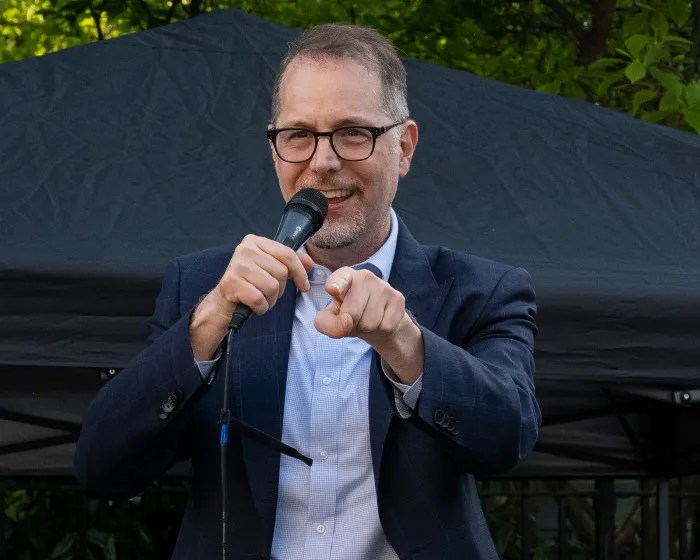One billion dollars in cuts to city agencies + concessions from city labor groups towards health care plans + $1 billion in federal aid + reinstituting and increasing sales tax rates = the four central components to Mayor Michael Bloomberg’s 2010 Executive Budget to balance the city’s $4 billion budget gap for the fiscal year 2010.
On Thursday, January 30, Bloomberg spoke for more than an hour about these difficult measures as well as others that the city will have to take in order to balance the increasing budget deficit due to the downward-spiraling economy during the past year.
“As we all know, this is a very tough time for our city and our nation, and our administration is trying to do everything possible to help New Yorkers weather the storm,” Bloomberg said.
Some of the tough choices Bloomberg spoke about included reducing the number of cops by 1,000 to save $48.9 million, decreasing senior center funding by $5.3 million and reducing the city subsidies to libraries by 7 percent for a savings of $20.1 million.
Meanwhile, Bloomberg said that the city would need help from both the federal and state government to balance its budget. Bloomberg also put the onus on the state to restore - with or without federal funds - more than $700 million in proposed education cuts to the city or else the city could be forced to cut 14,000 teacher positions.
“If our partners won’t do their part, [then] we will be forced to make even harder choices then we are making today,” Bloomberg said.
In total, 23,000 city jobs could face the ax if the state does not come up with additional aid.
One of the proposed items in Bloomberg’s Executive Budget receiving the most scrutiny from other legislators and organizations is the reinstitution and increase in sales tax.
Bloomberg’s proposal calls for repealing the sales tax clothing exemption - except for a two-week, tax-free period - and also increasing the tax rate by a quarter of a percent. Those measures could generate nearly $894 million by Fiscal Year 2010, but some legislators and organizations are already meeting the proposal with resistance.
“Adding in another cost that impacts all purchases for people who have already shouldered more than their fair share of the burden - and stand to get hit with transit fare hikes and other rising expenses - is hard to justify,” Queens City Councilmember Melinda Katz said.
City Comptroller William C. Thompson, who plans to seek the Democratic nomination for mayor in 2009 and challenge Bloomberg, agreed.
“The mayor’s budget proposal relies far too heavily on a sales tax increase at a time when the city’s hardworking families and small businesses are suffering,” Thompson said.
Thompson said that they city should consider raising the personal income tax with a focus on high-income taxpayers earning more than $500,000 annually to help raise additional revenue.
Now, the City Council’s Budget Committee, chaired by Queens City Councilmember and Finance Chair David Weprin will begin reviewing the budget, which the Council and Mayor have to come to an agreement on later this year.






























